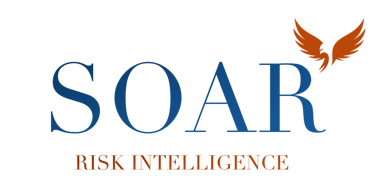GO BEYOND RISK MANAGEMENT
Managing Operational Risk in Manufacturing Industry
Ensure safe and smooth operations
Operational risk is a pivotal concern in the manufacturing sector, with the potential to profoundly influence a company’s overall success, profitability, and market position. In an industry where precision, timing, and safety are paramount, the ability to identify, assess, and mitigate operational risks is not just a best practice—it’s a fundamental necessity. Failure to adequately prepare for and respond to operational risks can lead to catastrophic financial losses, severe disruptions, and long-lasting damage to a company’s reputation.
Operational Risk in Manufacturing
In manufacturing, operational risk encompasses the array of potential disruptions and failures that can occur within a company’s internal operations. These risks may arise from flawed procedures, outdated or malfunctioning systems, human error, or inadequate responses to external events. Each of these factors holds the capacity to trigger significant financial setbacks, production halts, or reputational harm, threatening the company’s ability to compete effectively in a highly dynamic and competitive market.
The Broad and Deep Impact of Operational Risks
Operational risks in manufacturing have extensive and multifaceted consequences that can ripple across the entire organization:
Vulnerability to Criminal Activities: Inadequate process controls and system vulnerabilities can expose the company to criminal activities, including fraud and cyberattacks, leading to financial losses.
Production Delays: Any disruption in the production process, whether due to equipment failure or supply chain issues, can result in missed deadlines, damaging customer relationships and potentially leading to lost contracts.
Costly Equipment Failures: Malfunctioning machinery incurs direct repair costs, leading to costly downtime, disrupting production schedules and affecting overall productivity.
Regulatory Non-Compliance: Failure to adhere to industry regulations can result in hefty fines, legal battles, and a tarnished reputation, which can be difficult to recover from in a market where trust is crucial.
Reputational Damage: Operational incidents, whether publicized or not, can erode trust among customers, investors, and employees, leading to long-term harm to the brand.
Strategic Risk Management: A Necessity in Manufacturing
To safeguard against these threats, effective risk management in manufacturing must be proactive and comprehensive. Key components include:
Risk Identification: Recognizing all potential operational risks, both internal and external.
Impact Assessment: Evaluating the potential severity and likelihood of these risks.
Preventive Measures: Implementing controls and safeguards to minimize risk exposure.
Contingency Planning: Developing robust plans to ensure swift and effective responses to any operational disruptions.
Key Takeaways
In a competitive industry like manufacturing, where margins can be thin and customer expectations high, the ability to manage operational risk effectively can be the difference between thriving and merely surviving.


Disclaimer
This content is meant for information only.
Why SOAR Risk Intelligence...
Apply Risk Intelligence and gain resilience, create new capabilities, and capitalise on opportunities faster and effectively in your risk management oversight. Our team of experts can assist you in strengthening, developing, and transforming the way you manage risks by applying international best practices, advanced analytics, and artificial intelligence in an ever-evolving business landscape.
